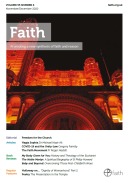Book Review: A Lockdown Martyr
In terms of historiography, the English Martyrs fall into two broad categories: viz. those about whose lives much is known by means of their own writings and other contemporary accounts (e.g. Saints John Fisher, Thomas More, Edmund Campion and Robert Southwell) and those who witnessed to the Catholic Faith with their lives but about whom relatively little was recorded. Into this latter category fall a number of the laity who were martyred. But of St Philip Howard (1557- 1595), by virtue of his nobility – he was Earl of Arundel – and also his lengthy imprisonment – he was confined to the Tower of London for no less than ten years – there is a great deal that is and can be known, especially by means of his literary testimony (letters, poetry, record of his spiritual reading etc.).
Writings and Spiritual Life
Dudley Plunkett in this slim but excellently-presented volume draws together the various strands which converge to illustrate the importance of Philip Howard’s witness; and the significance of the book rests in its sub-title. This is not only an account of the martyr’s life, but it is one framed by a close reading and understanding of the extant literary material from the saint himself, hence a spiritual biography. The events of Philip’s life and his subsequent arrest, imprisonment and death are dealt with by the author in his introduction and in the first chapter. Indeed, the full bibliography at the end of the volume offers a variety of other biographical sources and accounts. The bulk of the work, however, concentrates on the saint’s spiritual life as evidenced in the first place by his writings. Plunkett also appends examples of these, including a number of poems – perhaps the most poignant being ‘A Lament for Our Lady’s Shrine at Walsingham’: ‘Bitter, bitter, O to behold/The grass to grow/Where the walls of Walsingham/so stately did show.’
Inspiration
For the reviewer, however, almost the most important part of this book comes right at the end of the text proper, in Chapter 8 ‘Reclaiming the Elizabethan Martyrs’ where the author relates the experience of these brave men and women to patristic writings on the same theme (viz. Irenaeus and Tertullian). It is true, and sadly so, that not only are our martyrs and their sacrifice less well known among English Catholics certainly than a generation ago, but also that the public witness to them is nowadays in many ways less obvious. Who remembers the Tyburn Walks, I wonder? Yet as Dudley Plunkett reminds us, ‘If we forget such a martyr [as St Philip Howard], we would be counting his life as lived in vain or as an irrelevance’ (p.89). He goes on to make the point that the isolation of Philip’s long years in the Tower, being separated from family and friends, are a ready source of inspiration for those who believe their own lives to be without meaning.
Lockdown
This review is being written under the conditions of the ‘lockdown’, a painful period when many of the essentials of life are available but not as yet the freedom to enter churches and attend Holy Mass. St Philip Howard in his own imprisonment (a true ‘lockdown’) would perhaps have readily understood – and better than most - how an enforced and sustained deprivation of the sacramental life needs to be supplemented by an equally sustained rhythm of prayer and a trust in Providence. He would also have known only too well how far at times secular authority fails in its appreciation of the needs of the soul. As the present Duke of Norfolk comments in his Foreword, his noble ancestor was perfectly in tune with the Catholic tradition of medieval England, particularly that of the country being the Dos Mariae (the Dowry of Mary) – as evidenced in the poem quoted earlier - hence the significance of Ivor Hursey’s carving of the saint in Arundel Cathedral showing St Philip holding the Rosary and, it must be said, especially so in this year (the Solemnity of the Annunciation 2020) when the Bishops of England & Wales have rededicated England under that title. As, please God, we emerge from the coronavirus crisis, the Church in this country will turn with renewed vigour to seek the intercession of St Philip Howard and indeed all the Martyrs of England, understanding, with the author, that we need now more than ever the example of their witness and the efficacy of their prayers.
Father Stewart Foster is Archivist ofthe Diocese of Brentwood.






